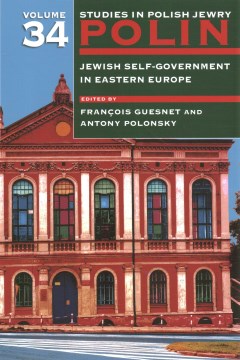

Polin: Studies in Polish Jewry Volume 34: Jewish Self-Government in Eastern Europe
ISBN: 9781800348240
Checking local availability
Title
RM425.43
Publisher,Littman Library of Jewish
Publication Date,
Format, Paperback
Weight, 716.68 g
No. of Pages, 459
Few features have shaped east European Jewish history as much as the extent and continuity of Jewish self-rule. Offering a broad perspective, this volume explores the traditions, scope, limitations, and evolution of Jewish self-government in the Polish lands and beyond. Extensive autonomy and complex structures of civil and religious leadership were central features of the Jewish experience in this region, and this volume probes the emergence of such structures from the late medieval period onwards, looking at the legal position of the individual community and its role as a political actor. Chapters discuss the implementation of Jewish law and the role of the regional and national Jewish councils which were a remarkable feature of supra-communal representation in the Polish-Lithuanian Commonwealth.
The volume reflects on the interaction between Jewish legal traditions and state policies, and offers an in-depth analysis of the transformation of Jewish self-government under the impact of the partitions of Poland-Lithuania and the administrative principles of the Enlightenment. Co-operation between representatives of the Jewish and non-Jewish communities at the local level is discussed down to the interwar years, when Jewish self-government was considered both a cherished legacy of pre-partition autonomy and a threat to the modern nation state.
The volume reflects on the interaction between Jewish legal traditions and state policies, and offers an in-depth analysis of the transformation of Jewish self-government under the impact of the partitions of Poland-Lithuania and the administrative principles of the Enlightenment. Co-operation between representatives of the Jewish and non-Jewish communities at the local level is discussed down to the interwar years, when Jewish self-government was considered both a cherished legacy of pre-partition autonomy and a threat to the modern nation state.

